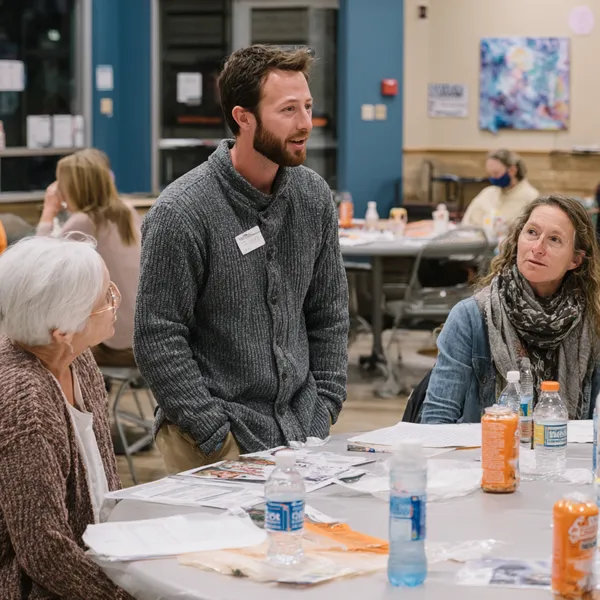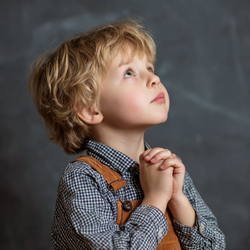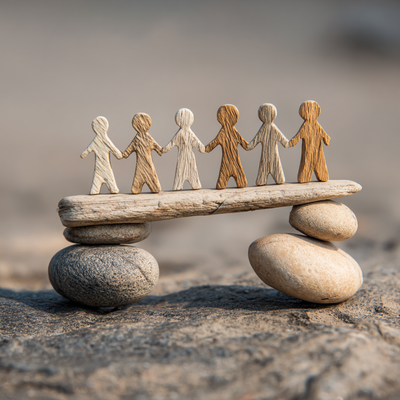VBS starts tomorrow and I'm getting ready for bed when Jessica texts me at like 10:30 PM "Umm what am I supposed to do tomorrow exactly? I know crafts but how many kids am I getting? What supplies? WHERE IS EVERYTHING???"
I'm just staring at my phone in the dark thinking oh crap.
Spent three weeks planning every little detail but somehow never told anyone what they're actually supposed to DO with all my brilliant plans.
This is why I shouldn't be in charge of anything.
So Monday morning hits and it's like watching a slow motion disaster. Sarah shows up asking where craft supplies are. Tom's got no clue which kids belong to him. Mike's wandering around trying to set up games but looking completely lost.
I'm running around like my hair's on fire trying to explain everything to everyone while kids are arriving and parents asking questions and nothing's ready and I can feel my eye starting to twitch.
That was the day I learned that volunteer training isn't optional. It's literally what keeps your event from being total chaos that people talk about for years.
The Meeting That Actually Helps
Used to send people an email with schedule and call it training. Which is like giving someone car keys and saying "figure it out."
Now we sit down together few weeks before and actually talk through stuff.
Not just "you're doing crafts" but "what happens when kid has allergic reaction?" "Where's first aid kit?" "What if someone's being completely nuts?" "What if you run out of glue sticks?"
Basic questions that seem obvious until you're standing there panicking.
Jessica said later that meeting made her feel way less terrified because she actually knew what might happen instead of just crossing her fingers.
Tom's naturally anxious so having chance to ask all his worried questions ahead of time helped him sleep better.
Walking Through Everything
Show people where stuff actually is. Don't assume they know.
"Supplies are in closet" doesn't help when there's like six closets and none of them are labeled properly.
Take them on tour. Show them where bathroom is. Where extra chairs live. Where kids get picked up. Where you hide when parents complain.
Point out weird stuff like "this door sticks" or "light switch is behind here" or "sink doesn't work don't even try."
Had volunteer spend half hour looking for paper towels because I moved them and forgot to mention it. She was getting increasingly frantic while kids waited for cleanup.
Another one set up entire activity in dark because couldn't find light switch.
These things seem obvious when you work there every week but they're mysteries to everyone else.
Practice Run
For big events we do practice session with just volunteers.
Sounds silly but you catch so many problems.
"Kids arrive here then move there then rotate to your station Sarah."
Let people actually try their activities with each other playing kids.
Mike found out his game took forever. Sarah realized she needed way more supplies. Tom figured out smaller groups worked better.
Better to discover this stuff during practice than with twenty real kids staring at you.
Emergency Sheet
Make simple sheet with info people need when things go wrong.
Who's in charge. Where first aid is. What to do if kid gets hurt. Who to call if parents don't show up.
Also practical stuff like where extra supplies are, how copy machine works, where cleaning stuff lives.
Tape it somewhere obvious.
Volunteer told me later this saved her when kid threw up everywhere and she had no idea what to do. Sheet told her exactly where cleaning supplies were and who to get for help.
Buddy System
Pair new people with experienced ones.
Don't throw someone in deep end hoping they figure it out.
New person follows experienced one first day then gradually takes over.
Jessica was terrified about crafts so I paired her with Sarah who'd done it forever. By end of week Jessica felt confident.
Tom's quiet so partnered him with Mike who's more outgoing. Mike helped him feel comfortable talking to kids.
Role Playing
Practice difficult scenarios.
"What if parent complains about mess?" "What if kid has meltdown?" "What if someone gets hurt?"
Feels awkward but helps people not freeze when real thing happens.
Had volunteer thank me for practicing parent complaints because it actually happened and she knew how to handle it.
Supply Lists That Make Sense
Don't just say "construction paper." Say "construction paper - one sheet per kid, red blue green, stored in craft closet top shelf blue bin."
Include backups. "If out of glue sticks liquid glue is in bottom drawer."
Be specific about amounts. "One small bag goldfish per kid already ordered sitting in kitchen."
Had volunteer panic thinking she needed to buy snacks but they were already there.
Build In Buffer Time
Don't make schedule so tight one delay ruins everything.
"Craft 10:00-10:45" instead of "craft 10:00-10:30."
Include cleanup time. Warn about bottlenecks like bathroom breaks taking forever.
Had schedule so packed volunteers felt rushed entire week. Nobody had fun.
Next year added fifteen minutes between everything. Way more relaxed.
When Things Go Wrong
Give permission to change stuff.
"If craft takes too long simplify it." "If game's not working switch to backup." "If behind skip optional stuff."
Goal is kids having good time not perfectly following your plan.
Had volunteer stress because craft running long. Told her goal was kids enjoying themselves not finishing on schedule.
She relaxed. Kids had better time.
Check In During Event
Don't disappear after dropping people off.
Walk around. Ask how it's going. Solve problems before they become disasters.
"Need anything?" "Kids responding well?" "Enough supplies?"
Sometimes people struggling but don't want to complain.
Had volunteer overwhelmed by group size but felt bad saying anything. When I asked she mentioned it and we got help.
Talk About It After
Don't just say thanks and move on.
What worked? What didn't? What would you change?
Volunteers have great insights but nobody asks.
Sarah said kids loved one craft hated another. Good info for next year.
Tom had ideas for better supply organization.
Why This Matters
Confident volunteers create better experiences.
People who know what expect stick around longer.
Training prevents problems instead of just reacting to disasters.
Kids feel secure when adults seem to know what they're doing.
What I Learned
Don't assume people know more than they do.
Practice really helps.
Small details matter.
Investment in training pays off.
Jessica who panicked night before? Now helps train others because remembers how scary it was being unprepared.
That's good training. Building confidence not just dumping information.








